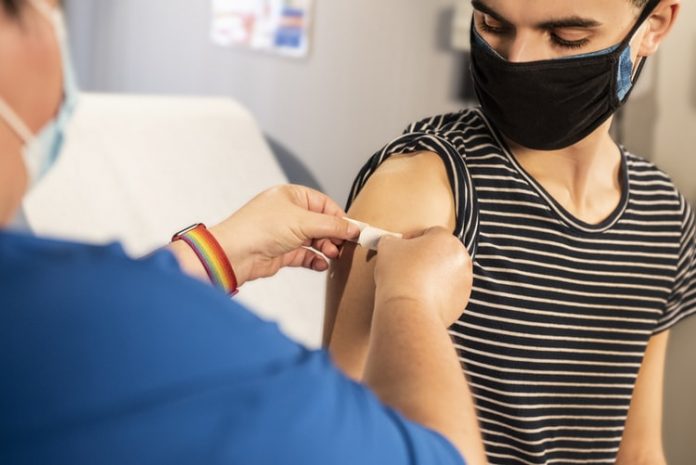The Ontario government’s new directive to implement vaccine policies in hospitals, ambulatory services, and community and home care services – added to the earlier directive on long-term care – is a step in the right direction, says the Registered Nurses’ Association of Ontario (RNAO).
However, the association says it doesn’t achieve the goal of mandatory vaccination that is necessary to protect patients against the dominant Delta variant, as it allows anyone who wishes to substitute vaccination with rapid testing and an educational session. RNAO also says the directive must be applied to all health-care workers in all health sectors, including primary care. It is also missing the implementation of a vaccine passport / certificate that is essential for the safe reopening of the economy.
“Proof of full vaccination must be provided and the only exception should be for people with a medical exemption,” says RNAO President Morgan Hoffarth, adding that “medically exempted staff must be required to present proof of a negative test, a minimum of twice a week (or 24 to 48 hours prior to work for part-time and casual workers), not just once a week as the government indicated. These are crucial steps to prevent further spread of a highly transmissible variant,” insists Hoffarth.
With schools reopening in a few short weeks, RNAO is pleased the government announced mandatory immunization disclosure policies for the education sector but again insists the only exception should be for medical reasons. “We look forward to details from the ministry of education and ministry of colleges and universities regarding the new vaccine policies – and RNAO expects these to extend from daycare all the way through to universities and colleges,” adds Hoffarth urging that “the plan must include mandatory indoor masking for children ages two and up in kindergarten and daycare centres.”
RNAO says mandatory masking for all children and education staff, mandatory immunization policies for staff, alongside other essential measures such as physical distancing, cohorting and ventilation, will ensure a return to school that is as safe as possible in the face of what Ontario’s Chief Medical Officer of Health Dr. Kieran Moore calls a “difficult fall.”
“We commend the government for pausing the move out of step three of its reopening plan,” says RNAO CEO Dr. Doris Grinspun, adding that “now is the time to remain extremely vigilant and get vaccines into arms, not to relax any measures.”
While RNAO is pleased to see the focus on vaccination in health care and education, there was no mention of vaccine passports or certificates. “A #VaccinePassport is essential policy to protect Ontarians and businesses,” says Grinspun. “Mandating vaccine certificates to access risky indoor non-essential services and long-distance travel will keep the workforce safe, energize dormant sectors of the economy and protect businesses that implement these measures,” adds Grinspun.
As Dr. Moore noted, the drop in vaccine uptake and the rise in new infections requires action now. Speed is of the essence, and Sept. 7 – the date when the vaccine policies take effect – is a month too late. RNAO called for mandatory vaccination on July 15.
RNAO urges all eligible Ontarians to get vaccinated to protect themselves, their loved ones and our communities. RNAO welcomes a third dose for specific immunocompromised individuals and for those in high-risk settings. Immunization is our way out of this long, devastating pandemic.
The Registered Nurses’ Association of Ontario (RNAO) is the professional association representing registered nurses, nurse practitioners, and nursing students in Ontario. Since 1925, RNAO has advocated for healthy public policy, promoted excellence in nursing practice, increased nurses’ contribution to shaping the health system, and influenced decisions that affect nurses and the public they serve. For more information about RNAO, visit RNAO.ca or follow us on Twitter, Facebook and Instagram.








